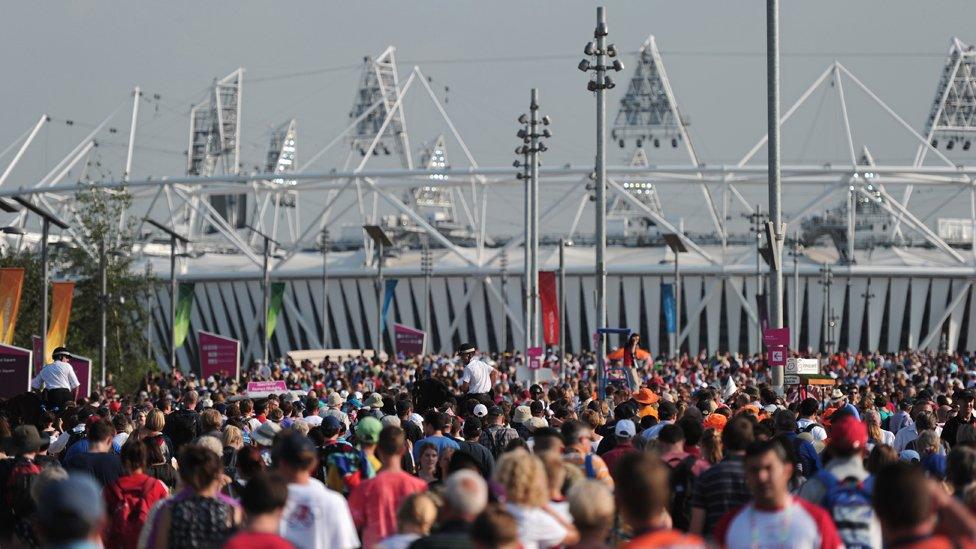Did the Paralympics change attitudes to disability?
- Published
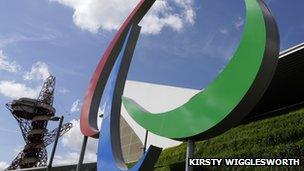
The Agitos, official symbol of the 2012 Paralympic Games
Declaring the 2012 Paralympics closed in September International Paralympic Committee president, Sir Philip Craven, said: "These Games have changed us all forever."
But have attitudes to disability really altered?
Some 2.7 million tickets were sold for the Paralympic Games and the amount of media and television coverage was unprecedented.
British stars of the Olympics and Paralympics celebrated their success together with a victory parade through the streets of London, cheered on by thousands.
But was Lord Coe right when he said "In this country we will never think of sport the same way and we will never think of disability the same way"?
Here is a selection of BBC News website readers' experiences of life with a disability, pre and post Paralympics.
Merry Cross, Reading
I was born with a significant mobility impairment and have a high risk of falling.
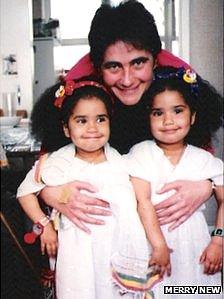
Merry Cross: "I think after the Paralympics there was a little glow"
Before the Paralympics attitudes to disability were already deteriorating due to the 'scroungers' and 'cheats' stories in the tabloids.
I haven't experienced obvious hostility, but what has changed is how threatened I feel all the time by the loss of help and benefits.
I've already lost help in the house and I may well lose my car which will leave me isolated. My spine is my biggest problem, so the loss of help at home is very difficult.
I believe the reason George Osborne got booed at the Paralympics is because the majority of people there had family who are disabled and knew what they were going through.
Not every able-bodied person is an athlete or an Olympian and the same is true for every disabled person.
The Paralympics may have changed the public's perceptions of what disabled athletes can achieve. Otherwise they haven't changed much.
Channel 4's "superhumans" tag has just caused polarisation and too many Paralympians say they don't see themselves as disabled.
The public on the whole don't appreciate that just getting through each day as a mother who is disabled, for example, can take as much hard work and effort as athletics training, but with no sponsors, coaches or team-mates to back you up.
I think after the Paralympics there was a little glow. I remember visiting London a couple of months later and people smiled at me, but that didn't last.
The number of stories now of disabled people being attacked because they are disabled is terrifying. I am much more nervous about going out myself.
The disabled athletes and disabled children joining sports clubs have benefited from the Paralympic Games, but most of us are really struggling.
James King, Milton Keynes
I'm partially sighted and have been registered blind since 1998.
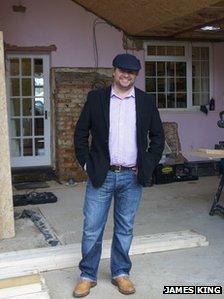
James King: "I have felt able to 'come out' about my loss of sight"
As a partially-sighted business owner, I have really felt the difference that the Paralympics have made to our nation's willingness to discuss disability openly.
People watched the Paralympics and realised the emotion and effort people have to make to compete. It took us to new levels of high and low emotion.
Trying to buy Paralympics tickets was just as hard as trying to buy Olympics tickets.
I think that disabled people, especially younger disabled people, will have someone to look up to now, which we didn't have before.
In my view attitudes have changed. Maybe it's different for me because when you meet me you wouldn't necessarily know I was blind.
I do use my white cane and I'm a builder and run a company selling to customers who are spending their hard-earned money.
I have felt able to 'come out of the closet' about my loss of sight and talk openly to clients and suppliers about my disability.
During the Paralympics, it helped that I became everyone's best friend! Wearing my GB top and with my white stick, everyone wanted to buy me a drink at the local pub!
A visit to the sitting volleyball event during the Paralympics even inspired me to enter the Stelios Awards for Disabled Entrepreneurs, external, where I reached the top three finalists last week.
Prior to the Paralympics, I would not have used the terms 'disabled' or 'registered blind'. Although I still prefer the phrase 'Para-Entrepreneur' rather than 'Disabled Entrepreneur'!
Sarah Blohm, Chandler's Ford, Hampshire
I have a degenerative spinal condition which has associated neurological problems that mean I'm in constant pain and that over time the discs in my spine will disintegrate.
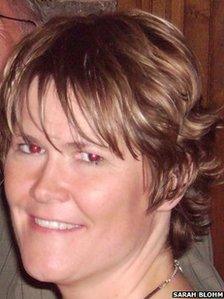
Sarah Blohm: "Views are polarised"
The pain started 20 years ago and I've been registered disabled for the past 12 years or so.
It is challenging and it takes a lot of effort just to do things on a day-to-day basis. I've never been unemployed until recently and it's very frustrating.
I'm 41 and didn't anticipate being disabled at such a young age.
Before my disability became too painful I led a very active life and I never anticipated I would be disabled. Until it happens to you, you really have no idea what it's like.
For me, I see people's attitudes on practical issues like getting around the shops - people bump me out of the way even though I have a stick.
They make it clear that my disability is causing them an inconvenience.
I've even been shouted at by able-bodied people when I've asked them not to park in a disabled parking bay. Things like: "Why are you using a disabled parking space? You don't look that disabled to me."
Before the Paralympics people had a perception of disability as being an amorphous mass.
But afterwards someone said to me they thought it was marvellous to see so many people showing triumph over adversity and they wondered why so many people were claiming benefits.
Now views are polarised between acceptable disabilities and unacceptable disabilities. I do believe politicians and some tabloid newspapers have a huge responsibility in this area.
Recently someone said to me that as I was a disabled person I was in a minority and so I should just accept the majority able-bodied view. It was one of the most shocking things I have heard.
- Published11 September 2012
- Published10 September 2012
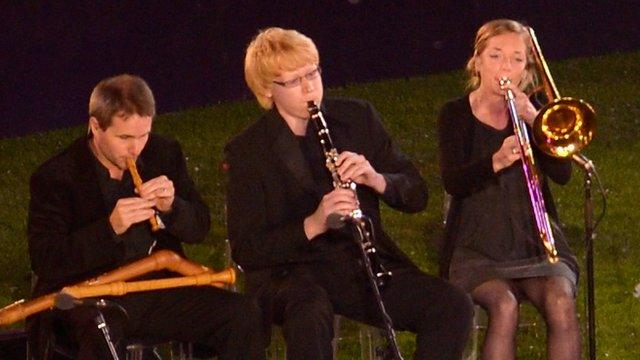
- Published7 September 2012
